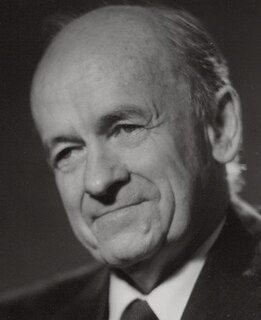
The organized environmental movement is represented by a wide range of non-governmental organizations or NGOs that seek to address environmental issues in the United States. They operate on local, national, and international scales. Environmental NGOs vary widely in political views and in the ways they seek to influence the environmental policy of the United States and other governments.

Human ecology is an interdisciplinary and transdisciplinary study of the relationship between humans and their natural, social, and built environments. The philosophy and study of human ecology has a diffuse history with advancements in ecology, geography, sociology, psychology, anthropology, zoology, epidemiology, public health, and home economics, among others.
In environmental philosophy, environmental ethics is an established field of practical philosophy "which reconstructs the essential types of argumentation that can be made for protecting natural entities and the sustainable use of natural resources." The main competing paradigms are anthropocentrism, physiocentrism, and theocentrism. Environmental ethics exerts influence on a large range of disciplines including environmental law, environmental sociology, ecotheology, ecological economics, ecology and environmental geography.

Ecological economics, bioeconomics, ecolonomy, eco-economics, or ecol-econ is both a transdisciplinary and an interdisciplinary field of academic research addressing the interdependence and coevolution of human economies and natural ecosystems, both intertemporally and spatially. By treating the economy as a subsystem of Earth's larger ecosystem, and by emphasizing the preservation of natural capital, the field of ecological economics is differentiated from environmental economics, which is the mainstream economic analysis of the environment. One survey of German economists found that ecological and environmental economics are different schools of economic thought, with ecological economists emphasizing strong sustainability and rejecting the proposition that physical (human-made) capital can substitute for natural capital.
A land ethic is a philosophy or theoretical framework about how, ethically, humans should regard the land. The term was coined by Aldo Leopold (1887–1948) in his A Sand County Almanac (1949), a classic text of the environmental movement. There he argues that there is a critical need for a "new ethic", an "ethic dealing with human's relation to land and to the animals and plants which grow upon it".
Spiritual ecology is an emerging field in religion, conservation, and academia recognizing that there is a spiritual facet to all issues related to conservation, environmentalism, and earth stewardship. Proponents of Spiritual Ecology assert a need for contemporary conservation work to include spiritual elements and for contemporary religion and spirituality to include awareness of and engagement in ecological issues.

J. Baird Callicott is an American philosopher whose work has been at the forefront of the new field of environmental philosophy and ethics. He is a University Distinguished Research Professor and a member of the Department of Philosophy and Religion Studies and the Institute of Applied Sciences at the University of North Texas. Callicott held the position of Professor of Philosophy and Natural Resources at the University of Wisconsin–Stevens Point from 1969 to 1995, where he taught the world's first course in environmental ethics in 1971. From 1994 to 2000, he served as vice president then president of the International Society for Environmental Ethics. Other distinguished positions include visiting professor of philosophy at Yale University; the University of California, Santa Barbara; the University of Hawai’i; and the University of Florida.
Ecology is a new science and considered as an important branch of biological science, having only become prominent during the second half of the 20th century. Ecological thought is derivative of established currents in philosophy, particularly from ethics and politics.
Ecocentrism is a term used by environmental philosophers and ecologists to denote a nature-centered, as opposed to human-centered, system of values. The justification for ecocentrism usually consists in an ontological belief and subsequent ethical claim. The ontological belief denies that there are any existential divisions between human and non-human nature sufficient to claim that humans are either (a) the sole bearers of intrinsic value or (b) possess greater intrinsic value than non-human nature. Thus the subsequent ethical claim is for an equality of intrinsic value across human and non-human nature, or biospherical egalitarianism.

The environmental humanities is an interdisciplinary area of research, drawing on the many environmental sub-disciplines that have emerged in the humanities over the past several decades, in particular environmental literature, environmental philosophy, environmental history, science and technology studies, environmental anthropology, and environmental communication. Environmental humanities employs humanistic questions about meaning, culture, values, ethics, and responsibilities to address pressing environmental problems. The environmental humanities aim to help bridge traditional divides between the sciences and the humanities, as well as between Western, Eastern, and Indigenous ways of relating to the natural world and the place of humans within it. The field also resists the traditional divide between "nature" and "culture," showing how many "environmental" issues have always been entangled in human questions of justice, labor, and politics. Environmental humanities is also a way of synthesizing methods from different fields to create new ways of thinking through environmental problems.

Environmental philosophy is a branch of philosophy that is concerned with the natural environment and humans' place within it. It asks crucial questions about human environmental relations such as "What do we mean when we talk about nature?" "What is the value of the natural, that is non-human environment to us, or in itself?" "How should we respond to environmental challenges such as environmental degradation, pollution and climate change?" "How can we best understand the relationship between the natural world and human technology and development?" and "What is our place in the natural world?" Environmental philosophy includes environmental ethics, environmental aesthetics, ecofeminism, environmental hermeneutics, and environmental theology. Some of the main areas of interest for environmental philosophers are:

A Sand County Almanac: And Sketches Here and There is a 1949 non-fiction book by American ecologist, forester, and environmentalist Aldo Leopold. Describing the land around the author's home in Sauk County, Wisconsin, the collection of essays advocate Leopold's idea of a "land ethic", or a responsible relationship existing between people and the land they inhabit. Edited and published by his son, Luna, a year after Leopold's death, the book is considered a landmark in the American conservation movement.

John Passmore AC was an Australian philosopher.

David Abram is an American ecologist and philosopher best known for his work bridging the philosophical tradition of phenomenology with environmental and ecological issues. He is the author of Becoming Animal: An Earthly Cosmology (2010) and The Spell of the Sensuous: Perception and Language in a More-than-Human World (1996), for which he received the Lannan Literary Award for Nonfiction. Abram is founder and creative director of the Alliance for Wild Ethics (AWE); his essays on the cultural causes and consequences of ecological disarray have appeared often in such journals as the online magazine Emergence, Orion, Environmental Ethics, Parabola, Tikkun and The Ecologist, as well as in numerous academic anthologies.

Deep ecology is an environmental philosophy that promotes the inherent worth of all living beings regardless of their instrumental utility to human needs, and the restructuring of modern human societies in accordance with such ideas.
This timeline of the history of environmentalism is a listing of events that have shaped humanity's perspective on the environment. This timeline includes human induced disasters, environmentalists that have had a positive influence, and environmental legislation.
Biocentrism, in a political and ecological sense, as well as literally, is an ethical point of view that extends inherent value to all living things. It is an understanding of how the earth works, particularly as it relates to its biosphere or biodiversity. It stands in contrast to anthropocentrism, which centers on the value of humans. The related ecocentrism extends inherent value to the whole of nature.
The following outline is provided as an overview of and topical guide to environmentalism, broad philosophy, ideology and social movement regarding concerns for environmental conservation and improvement of the health of the environment, particularly as the measure for this health seeks to incorporate the concerns of non-human elements. Environmentalism advocates the preservation, restoration and/or improvement of the natural environment, and may be referred to as a movement to control pollution.
Max Oelschlaeger is an American ecological philosopher, active in the study of Environmental Ethics, Environmental Philosophy, Ecofeminism, Deep Ecology, Philosophy of Ecology, Contemporary Environmental Issues, Postmodern Environmental Ethics, and the Philosophy of Wilderness.

Philosophy of ecology is a concept under the philosophy of science, which is a subfield of philosophy. Its main concerns centre on the practice and application of ecology, its moral issues, and the intersectionality between the position of humans and other entities. This topic also overlaps with metaphysics, ontology, and epistemology, for example, as it attempts to answer metaphysical, epistemic and moral issues surrounding environmental ethics and public policy.









